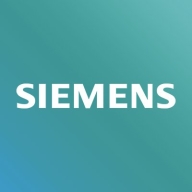

TFS and Polarion ALM compete in application lifecycle management. TFS offers a more integrated experience with Visual Studio, providing it with the upper hand in environments already using Microsoft tools.
Features: TFS is valued for its end-to-end application lifecycle management capabilities, seamless integration with Visual Studio, and agile project management features. It offers robust source control options and is highly scalable and configurable. Polarion ALM is praised for its effective requirement management, superior test and quality management, and exceptional traceability. It provides a structured system that aids in verification and validation, which benefits projects requiring high-level traceability and compliance.
Room for Improvement: TFS users suggest enhancements in stability, merging features, and administration tools, while highlighting issues with build definition management and agile integration challenges. Polarion ALM needs better reporting capabilities, improved integration with third-party tools, and streamlined task management. Its configuration could be simplified for enhanced user experience.
Ease of Deployment and Customer Service: TFS supports deployment on-premises, hybrid, and public cloud, offering flexibility tailored to various organizational needs. Its extensive online community often supplements Microsoft's technical support, though response times can vary. Polarion ALM allows deployment in both private and public clouds. However, integration challenges might require external help, pointing to potential improvements in technical assistance.
Pricing and ROI: TFS is considered cost-effective for users integrating it with Visual Studio, though it entails relatively high licensing fees. Organizations report notable ROI due to increased productivity and workflow efficiency. Polarion ALM has a higher price point, which might deter smaller enterprises. Its value lies in extensive functionality, though additional expenses for integrations or plugins add to the cost.
| Product | Market Share (%) |
|---|---|
| Polarion ALM | 6.4% |
| TFS | 3.7% |
| Other | 89.9% |

| Company Size | Count |
|---|---|
| Small Business | 10 |
| Midsize Enterprise | 3 |
| Large Enterprise | 12 |
| Company Size | Count |
|---|---|
| Small Business | 17 |
| Midsize Enterprise | 25 |
| Large Enterprise | 64 |
The world’s first 100% browser-based ALM enterprise solution, which enables seamless collaboration across disparate teams, multi-directionally linked work items, full traceability, accelerated productivity and automated proof of compliance.
Visual Studio’s Team Foundation Server (TFS) is a powerful application development lifecycle management solution. It aids developers in managing every aspect of their DevOps and application creation. TFS combines many different types of solutions into a single powerful platform.
Visual Studio TFS Benefits
Some of the ways that organizations can benefit by choosing to deploy TFS include:
Visual Studio TFS Features
Source code management. TFS comes with all of the tools that developers need to completely manage their source code. They can share their code so that multiple developers can work on the same project. Additionally, TFS enables them to do things like review the history of a particular piece of source code.
Reviews from Real Users
TFS is a highly effective solution that stands out when compared to many of its competitors. Two major advantages it offers are its source code management capabilities and its powerful integration suite.
Carl B., the vice president of engineering at Vertex Downhole Ltd, writes, “The most valuable features are related to source code management. Using TFS for source code management and being able to branch and have multiple developers work on the same projects is valuable. We can also branch and merge code back together.”
Ashish K., the principal consultant at Wipro, says, “I have found almost all of the features valuable because it integrates well with your Microsoft products. If a client is using the entire Microsoft platform, then TFS would be definitely preferable. It integrates with the digital studio development environment as well.”
We monitor all Application Lifecycle Management (ALM) Suites reviews to prevent fraudulent reviews and keep review quality high. We do not post reviews by company employees or direct competitors. We validate each review for authenticity via cross-reference with LinkedIn, and personal follow-up with the reviewer when necessary.